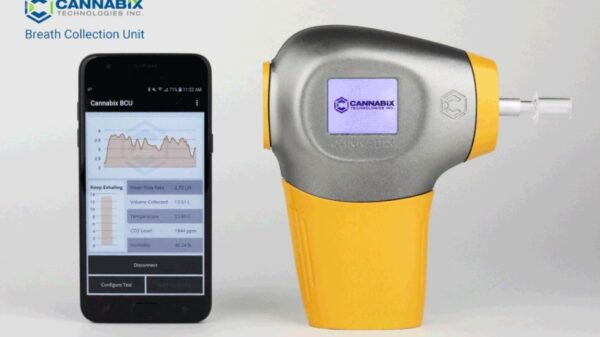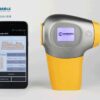Although messaging about the perils of impaired driving reached its peak over the holidays, citizens who frequent roadways will know the year’s most dangerous time to drive is far from over.
The sky is darker, the roads are slipperier and data shows people use more substances to combat their seasonal affective blues.
As cannabis liberalization continues to sweep the continent, law enforcement is still waiting for a silver bullet to crack down on people too high to drive.
Devices like the Drager DrugTest 5000 have tried and failed to tackle the historically difficult task of detecting an objective measure of cannabis impairment by the roadside.
So as the gap in the market prevails, other companies are vying to be the first to successfully capitalize.
Breathalyzer developer Cannabix Technologies Inc. (CSE: BLO and OTC PINK: BLOZF) is trying to be that business.
The company’s valuation rose 17 per cent Tuesday on the Canadian Securities Exchange following news of technological advancement, size reduction and mainstream media coverage.
Despite being only five cents shy of its three-month high of 66 cents a share, the stock has been volatile over the past couple years.
In particular, Cannabix said it had made significant gains in improving the sensitivity of its THC-detection technology.
Multiple companies in the space, including Hounds Labs Inc., have listed sensitivity to THC particles in the breath as a key component to their technology.
The trouble with testing for THC
Critics have found fault with breathalyzer technology because saliva particles, which can indicate high blood-THC content well after impairment, are prevalent in breath samples.
Read more: Cannabix new THC breathalyzer milestone, DUI lawyer skeptical
However, Cannabix has said its unit has special saliva traps to filter out such particles.
A recent CNN article that mentioned the company outlined difficulties in detecting cannabis impairment.
Other possible solutions involve apps that test cognitive functioning by gauging factors related to safe driving, like reaction time. One such application is called Druid.
But the spotlight is still on solutions that mimic the classic approach to roadside alcohol enforcement.
Most law enforcement, including Vancouver police, have erred on the side of caution when it comes to rolling out new technology. They rejected the Drager device as unreliable, slow and clunky even though it had federal approval in 2018.
None of the companies in competition have given a clear timeline for when they expect to be ready for market, but if one device could prove its effectiveness to law enforcement agencies or other relevant industries, it would be a huge win for the business and its investors.
Top photo by West Midlands Police via Wikimedia Commons
nick@mugglehead.com
@nick_laba














